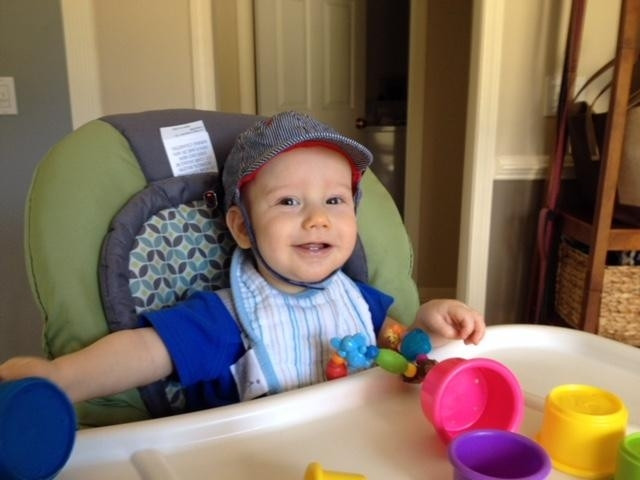Forget 'goo goo ga ga' - babies understand the meanings of words before they can even talk
Infants can recognise that the meanings of some words are more alike than others, even before they can speak.

Before they can even say a word, babies have developed a far better grasp of language than previously thought, according to a new study.
"Even though there aren't many overt signals of language knowledge in babies, language is definitely developing furiously under the surface," said Elika Bergelson, assistant professor of psychology and neuroscience at Duke University.
In her previous research, Bergelson showed that 6 to 9-month-old babies already have the ability to understand words for food and body parts. In her latest work, she demonstrates how babies can also recognise that the meanings of some words – like car and stroller – are more alike than others – car and juice, for example.
The findings are published in the journal Proceedings of the National Academy of Sciences.
"Even in the very early stages of comprehension, babies seem to know something about how words relate to each other," Bergelson said. "And already by six months, measurable aspects of their home environment predict how much of this early level of knowledge they have. There are clear follow-ups for potential intervention work with children who might be at-risk for language delays or deficits."
"They may not know the full-fledged adult meaning of a word, but they seem to recognise that there is something more similar about the meaning of these words than those words," Bergelson added.
Bergelson also found that there was a correlation between the babies' word knowledge and the things they heard people saying about their immediate environment.
"It turned out that the proportion of the time that parents talked about something when it was actually there to be seen and learned from correlated with the babies' overall comprehension," Bergelson said.
As an example, if a parent says, "here is my favourite pen" while holding up a pen, the baby may learn something about pens based on what they can see, Bergelson said. However, if a parent says, "tomorrow we are going to see the lions at the zoo," the baby may not know what lion means as they don't have any immediate clues.
"This study is an exciting first step in identifying how early infants learn words, how their initial lexicon is organised, and how it is shaped or influenced by the language that they hear in the world that surrounds them," said Sandra Waxman, a professor of psychology at Northwestern University who was not involved in the study.





















